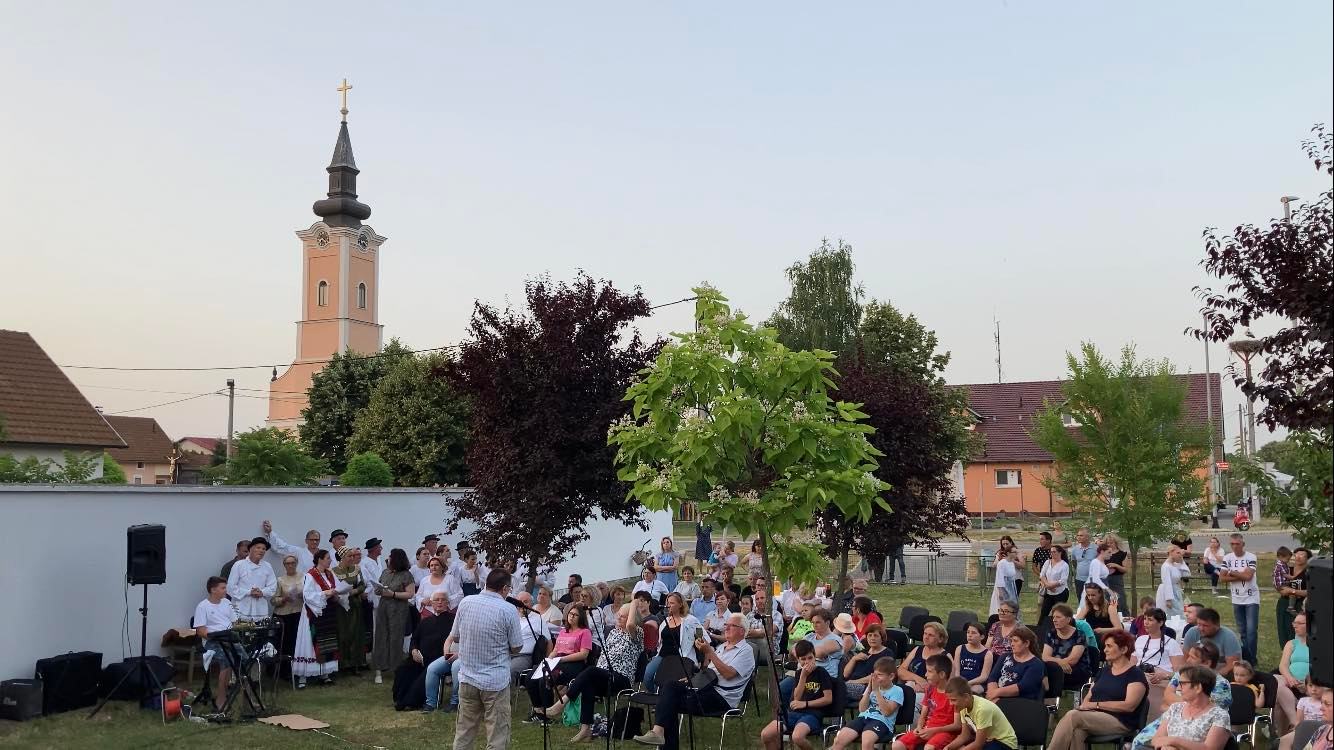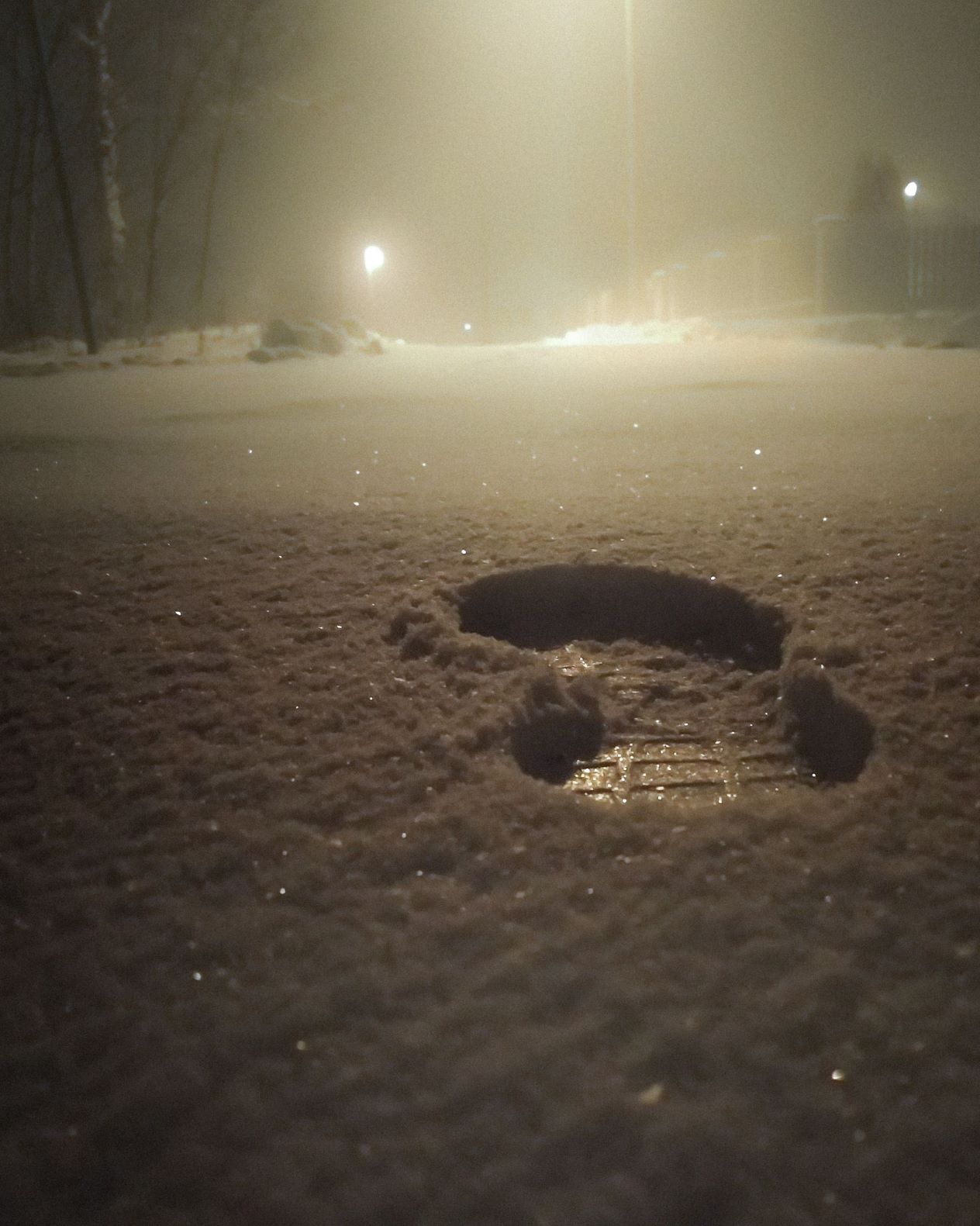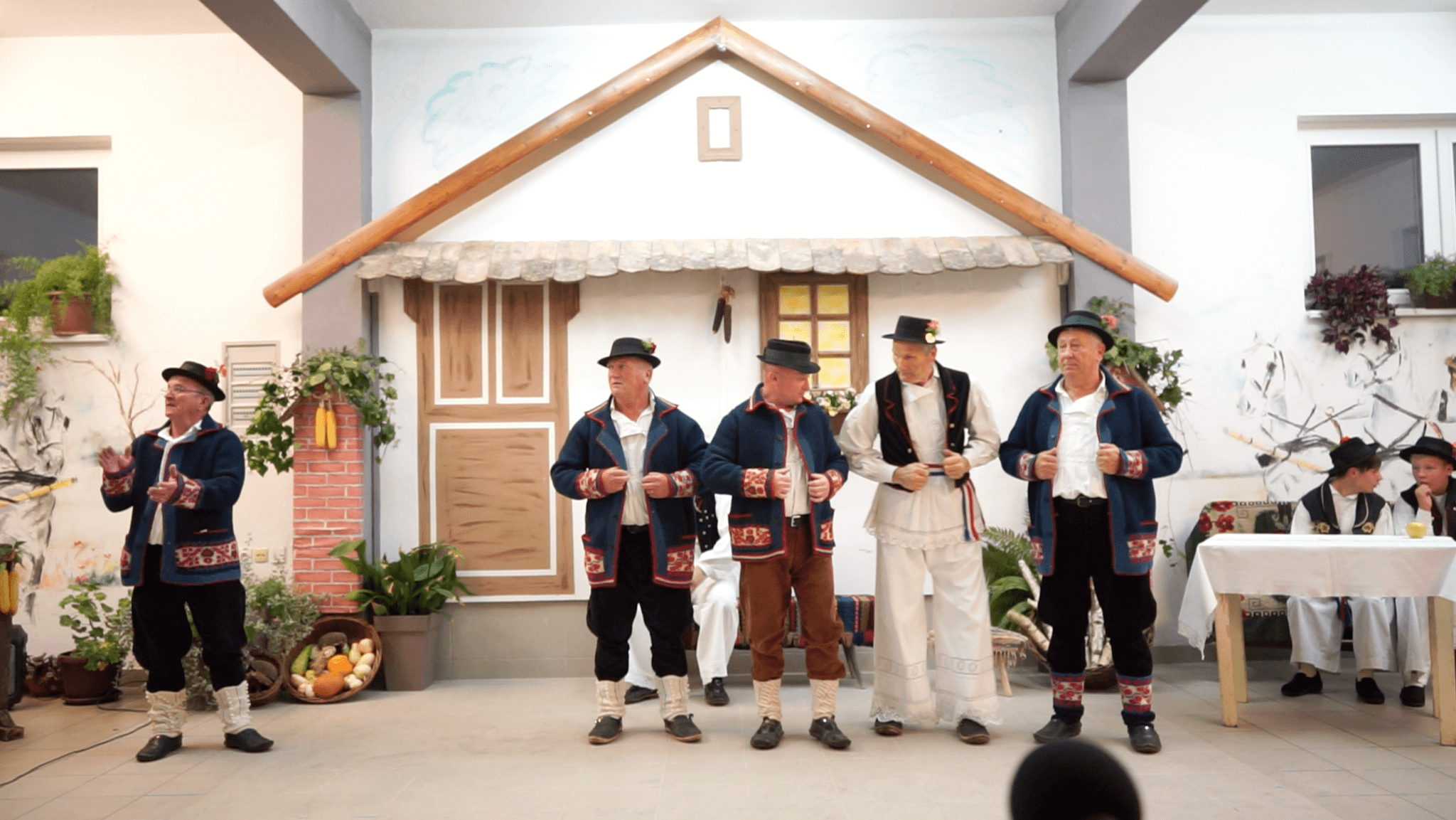31st of March 2022 - Meet Željko Čuljak, whose poetry and stories about the beauty of Slavonia and its residents aim to preserve the cultural heritage and tradition of his village Cerić and the whole Slavonian region.
We spoke with Željko in his home in the small village of Cerić, which is located near Vinkovci and has suffered a tragic fate. During the Homeland War, Cerić fell and was destroyed to the ground - residents lost everything and inevitably fled the enemy aggression which destroyed everything in their way. Željko, with his fellow fighters and villagers, stayed behind and helped to protect Nuštar, a nearby village that resisted tireless enemy attacks and led bloody battles that lasted for days. On the 5th of October in 1991, just a few days after surrounding villages fell to the enemy hands (Cerić and Marinci), Croatian defenders resisted enemy attacks and, in the end, managed to protect the village from aggressors. This event is forever inscribed in the history books of the Homeland War as the “Battle of Nuštar”, which was one of the biggest wins of the Croatian army in an effort to protect the country of Croatia from aggressors. Why is this event mentioned? Because its consequences left a big scar on Cerić and its surroundings - destroyed homes, displacement of the residents, destroyed the most recognizable symbol of the village, the church and so much more. The identity of the village was shattered by those buildings and still has an impact on the village's atmosphere today. However, returnees to the village and new residents made it their mission to bring back the old glory of Cerić, promote how people lived before the war, and show that their tradition, cultural heritage, and their lives were not erased on that fateful day in 1991.
Thus, join us in meeting Željko, who is at forefront of the mini “Slavonian revolution” which is propelled by his stories and poetry about the past and present and the future of Slavonia as well.
Željko, can you tell TCN readers a bit about yourself?
My name is Željko Čuljak, a folk poet and a writer, a defender of the Homeland War and a retiree, who in their free time raises pigeons and writes stories about Cerić and Slavonia. I am a father of three children, a grandfather, and a husband. My writing is connected to the exile of our village, ten years of watching my village from the frontlines. To understand my writing and me in general, you need to see where I live.
What is Cerić? If you look at it as an outsider it seems like any ordinary Slavonian small village, so what is so special about it to you?
We live in Slavonia, a rich and “full” region that through time attracted a lot of conquerors and consequently, misfortunes. People who lived here suffered a lot during a few wars that happened in this region and after those casualties, the number of residents rapidly decreased which led to people all over the country migrating to Cerić. In the beginning, a lot of conflicts occurred between immigrants and the old residents, who felt threatened by the newcomers. However, after some time, harmony and love prevailed and connected these different groups. Love won in the end and those newcomers accepted the village's customs and cultural heritage and traditions of this region. In conclusion, calm people live here.
"Evenings with Poetry" in Cerić, (photo credit: Vedran Čuljak)
When did you discover your passion for writing?
I don’t talk much, a lot of the things I prefer keeping to myself and we were taught “if you don’t have anything nice to say, it’s better for you to be quiet.” I endured the war better while I was in it than when I came back to destroyed homes and a neglected village, it fuels the anger in you. That site slowly but surely built up anger and rage in me and I couldn’t express it to others nor me. Then, one time at the mass, I heard a priest talking about anger and saying: “Love your enemies, forgive!” How can I do that?! I realized that I need to forgive myself to let go of that anger. When I’m surrounded by so many good people, how can I be angry?! And those experiences fueled my inspiration for writing. Firstly, I started writing for myself. I write about the beauty and happy adventures of our lives and their residents. I felt sorrowful for not sharing my work with anyone, so I started gifting and selling my work to family and friends. When they liked and praised my work, I felt like I was doing something right. Also, I am part of the Folklore Society of Cerić "Slavko Mađar" and they always need new ideas or “old” ideas I realized that war kind of erased part of our history, people who “disappeared” from this place took the tradition and cultural heritage with them. Today, I’m sort of a keeper of memories in Cerić, one of the people who bring those old stories and memories back to residents and it, unfortunately, seems that people forgot most of them. I try my best to save and preserve that cultural heritage for children of the future. We have a very nice combination of us poets who write and the rest of the village who “absorb” everything we make. We give our poetry soul and actors from Folklore give them life.
Željko, do you think there are enough of these initiatives that have the mission of preserving and promoting Slavonian cultural heritage?
Folklore Societies are keepers of tradition and it’s well represented, not just in our region but throughout all of Croatia. Every village and town have their own Folklore Society. The question is, are people aware of them? Once upon a time, people were actually running away from tradition and it was an embarrassment to even be connected to these groups because everything else foreign was better. Then we realized during War that we miss sitting under the old mulberry tree while the spring sun is shining, harvesting our own crops and so many more things that make this region unique. Simply, all of the residents of Cerić realized that that’s the point - it’s nice to go abroad to a beautiful country or city but in the end, there is no place like home.
Do you have any of your original work published?
I have a collection of poems called Trace of The Soul (Trag Duše) which came out in 2019. It’s mostly poems about the war we experienced, adventures, and traditions Cerić offered and inspired me to write about. I wrote another book of poetry expected to be published near the end of the year, it should’ve been published before but COVID-19 slowed down the process. It’s easy to write for me since there’s a lot of inspiration around me like children going back from school, the boy who’s a head shorter than the girl but still carries her bag, and those kinds of stories make my writing worthwhile. Everything is simple and lively in this village.

Original cover of "Pattern of the Soul" (Trag duše), Željko's published work, (photo credit: Vedran Čuljak)
Who’s your biggest critic?
My wife is my eternal inspiration to me haha AND my biggest critic of course. Everything that works and everything that doesn’t work she always tells me. She knows how to read my poem better than I! I don’t know how to interpret it when I write it! To me, it’s a blessing and brings me a lot of joy when every poem finds its own role, every person finds themselves in my poem, my story. We are extremely lucky that our whole village participates with us.
Can you tell us the events or manifestations that you organize every year in your village?
We have “Evening of Poetry” which is usually held during summertime at the end of June. It’s part of the celebration of our saint of the village, Ivan (John), or how we say it here, Ivanje. Usually held in the evening, residents gather and light up the torches, we sit on bales of straw in the middle of Cerić and recite our poems and stories. Residents and our guests also participate in the event and it’s such a beautiful celebration of Slavonian cultural heritage and traditions. We have one more event, the “Yearly concert of Folklore Society” which is held around Municipality Day of Nuštar. Local people criticized this manifestation since it was held on 2nd of the October which was the day Cerić fell in the Homeland War. We were accused of celebrating the biggest tragedy this village experienced in its history. What they didn’t understand is that we always celebrate life, coming back to our homes, all of those people who were exiled or have left us for other reasons and we do it with songs, socializing, being happy and that’s the most important part.

One of the manifestations celebrating the cultural heritage of Cerić and Slavonia, (photo credit: Vedran Čuljak)
As we know, Slavonia lost a lot of its residents in recent years, do you think that factor will affect your manifestations?
I don’t think so. Residents of Cerić notice our work as our guests as well. For example, we had a group of school children coming to our village as part of their trip, it was some kind of Vinkovačke Jeseni program and let’s just say the children weren’t that positive coming here. Why? Because they didn’t know what Cerić is, never heard of it and of course, they’re just not interested in those places, what can Cerić offer to them? However, after we hosted them nicely, organized nice lunch, their teacher, who was in charge, told us that this is the first time in her career that the children didn’t want to go home, they didn’t want to enter the bus and go. I know it’s a small sample but everyone who comes here, goes back home happy and they come back every year. There is still interest and to me, it seems it’s growing in the last few years.
Does that mean that there are successors and willing children to continue doing what you started? Promoting and persevering Slavonian cultural heritage?
Definitely! More and more children realized villages' worth, their traditions, and cultural heritage. Cerić and its residents are unbelievably close and connected, while other villages talk about the alienation of their residents from their heritage, we prosper every year more and more. When a child puts on our traditional folk costume (šokačku nošnju) and when you look at the photos of their ancestors in the same costumes, those children are vivid pictures of their predecessors, great grandmothers, great grandfathers, only the hair and clothes changed. Everything stayed the same. There are successors and always will be. They will never disappear!
Thank you Željko for your time! Can you recite one of your original Slavonian poems for the TCN readers?
From the poem "Slavonia, Mother"
"When I leave my homeland at dawn
I carry in my eyes a memory far from
far from the eye, to the heart, it's also hard
I will return once through tears, I said
.....
We'll meet again under the old oak
when the years close my dreamy eyes
until then I love you and always think of you
in my dream, almost every night I dream about you."
Events celebrating Slavonian cultural heritage mentioned in this interview are held in Cerić on the 24th of June "Evenings with Poetry" and the 2nd of October "Yearly Concert of Folklore Society "Slavko Mađar". If you're ever close and for instance, ever come to "Vinkovačke Jeseni", visit Cerić and their events, Slavonia, as always will welcome you with open arms.
For more, check out Made in Croatia.


